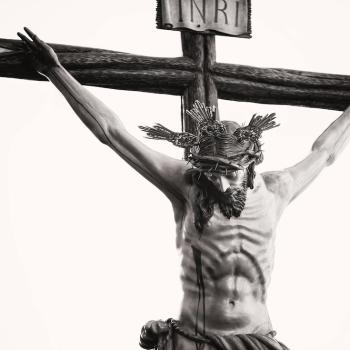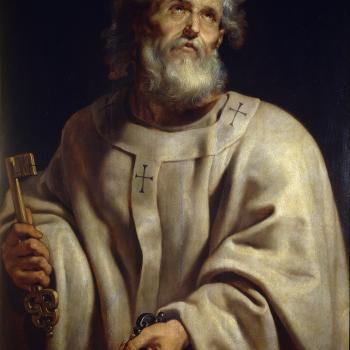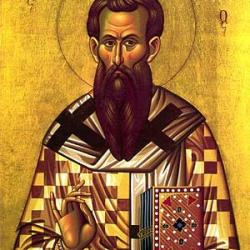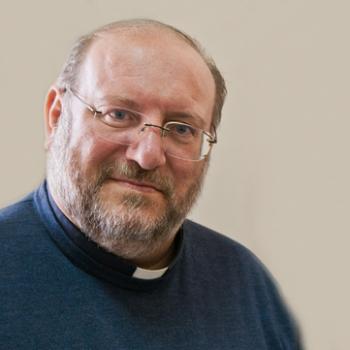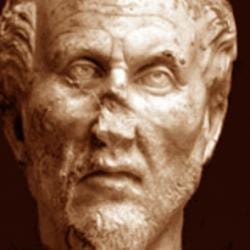 It was understandable that a book written with the participation of a Pope would be a best seller. There are other books of the kind, like the one with John Paul II and Benedict XVI. Popes understand that with the changing times they need new ways to communicate with the people, and this is certainly one.
It was understandable that a book written with the participation of a Pope would be a best seller. There are other books of the kind, like the one with John Paul II and Benedict XVI. Popes understand that with the changing times they need new ways to communicate with the people, and this is certainly one.
So, Pope Francis, who is fully aware of the power of media, has chosen to express his teachings about mercy in the form of a book interview with long time Italian Vaticanist Andrea Tornielli. The Name of God Is Mercy is a book that is quite easy to read, in the sense that the Pope uses simple language but also many anecdotes and examples to convey to the faithful this strong theme, a theme that is at the root of the present Jubilee: the name of God is mercy.
The book cover is also quite original, with the handwriting of the Pope. The book, released in 86 countries (but apparently not yet in Chinese), is divided into nine chapters and was presented on January 12, 2016 in the Auditorium of the Augustinianum Institute from Cardinal Pietro Parolin (secretary of state) and Roberto Benigni (actor). At the presentation were also present Fr Giuseppe Costa (director of the Vatican publishing house) and Agostino Zhang Jianquing, a prisoner of Chinese origins that during his time in an italian prison converted to Christianity. The presentation was coordinated by the Director of the Holy See Press Office, Father Federico Lombardi.
Commenting especially on the performance of the famous actor Roberto Benigni during this presentation, journalist Cindy Wooden has said: “Benigni brought the house down January 12 during the presentation of the new book-length interview with Pope Francis, The Name of God Is Mercy. The actor read excerpts of the book, but also offered his own reflections on mercy and bubbled over with praise for Pope Francis.
When he received the call asking him to participate in the book launch, Benigni said, he was told, “’His Holiness would like’ and I said, ‘Yes!’ without letting them finish. I’d do anything — be a Swiss Guard, drive the popemobile — absolutely anything for this pope.” “Mercy,” Benigni said, “is not a virtue that’s seated in an easy chair. It’s an active virtue, one that moves. Just look at the pope, he’s never still. It moves not just the heart, but the arms, legs, heels, knees. It moves heart and soul. It’s never still.”
“I would have loved to be a priest,” he said. When he was small and people asked what he wanted to be when he grew up, Benigni said, “I’d respond, ‘the pope’’ Because this response made everyone laugh, I understood I had to be a comedian. If they’d all knelt, I would (have tried to) be pope.” Hundreds of people packed the auditorium of the Augustinian Patristic Institute across the street from the Vatican for the presentation.
Reporting on the speech by Agostino Zhao, the Chinese inmate that convert to Christianity and that was chosen as a witness of what the mercy of God can work in the human soul, journalist Joshua J McElwee reported: “The most poignant presentation at the book launch came from Chinese-national Zhang Agostino Jianqing, an immigrant to Italy who related his story of committing a ‘grave error’ at age 19 and being sentenced to twenty years in prison. Once in prison, Jianqing said he felt within him a desire to change his life, especially so as not to cause more pain to his mother. He then decided to take his middle name, the Italian version of the name Augustine, in honor of the 4th-century saint who embraced Christianity after a turbulent early life. Jianqing gave special thanks to Francis for the focus he has given to prisoners. ‘I would have never thought of being invited to participate at the presentation of a book of a pope, nor of having the possibility to squeeze his hand,’ said the immigrant, referring to a meeting the book launch participants had with the pontiff Monday. ‘I am here with my story to witness how God’s mercy has changed my life,’ said Jianqing.”
Andrea Tornielli, the author of the book, has worked in several newspapers and magazines as Il sabato, 30 giorni, Il Giornale. Now he is the Vaticanist for the newspaper La Stampa and he is in charge of the website Vatican Insider. He is the author of over 50 books on several topics ranging from biographies of pontiffs and saints to books of Catholic apologetics. Andrea Tornielli has answered some of my questions related to the book and other pressing issues.
How did you personally experienced the transition from Benedict XVI to Pope Francis?
First, the big surprise for the renunciation, which blew me away, and which I did not expect it at all. Then, with great emotion, for the election of Francis, whom I considered a “candidate to the papacy” but did not think would be elected. Emotion because I had got to know him in previous years.
You wrote many books, some of which have to do with the recent popes. If you were to give a definition for each one – Pius XII, John XXIII, Paul VI, John Paul I, John Paul II, Benedict XVI and Francis – what would it be?
Definitions are reductive, I don’t like the game, but I will answer. Pius XII, “the Pope who led the Church in modern times” (sounds strange, but the magisterium of Pope Pacelli is important for the Council); John XXIII, “the ferryman to a new relationship with the world;” Paul VI, “the helmsman of the Council who by his suffering gave unity to the Church;” John Paul I, “the Pope of tenderness;” John Paul II, “the mystical pilgrim of God;” Benedict XVI, “the Pope of the faith;” Francis, “the Pope of the mercy.”
Who are the Catholic writers who have inspired you?
I am not a writer, I’m a journalist. But certainly I have a great debt of gratitude to Vittorio Messori, and his books on the historicity of the Gospels.
Do you think is possible for a Vatican expert to contest certain actions of the reigning pontiff? Is it possible to express openly low esteem of the Pope’s actions?
Of course it is possible, God forbid. We have some examples, there are those who deny not “some actions,” but simply all actions of the reigning Pope. And of course it is possible to openly express your low esteem. I remain convinced that the main task of a journalist is to properly inform about what is happening, in my case at the Vatican and in the Church. Today there is less and less good information and more and more comments, opinions, and sometimes, invectives.
You have also dealt with the lives of saints, for example Escrivá de Balaguer in your book of 2002. What conclusions have you drawn from your research?
My purpose was to present the life of Escrivá, founder of Opus Dei and the value of the book was that I had been able to consult all documents and the testimonies of the beatification process. It is up to readers to say whether the goal has been reached.
How you get to write a book with a Pope?
I make a proposal. In my case I was interested to ask him questions all focused on a single theme, that of mercy, to better understand the Jubilee through his experience as a pastor.
Did you agree on a plan for the book or you could ask what you wanted?
We did not agree on a plan. I sent, two days in advance, thirty questions and issues that I wanted to deal with. As we conversed, I added others. But yes, I could ask anything I wanted and any “shortcomings” are to be attributed only to me.
Are there questions you wanted to ask that have been left out of the book?
Honestly not. As I said, the theme was only mercy: it seems to me that in the pages of the book this theme is thoroughly addressed through the concrete experience of the Pope. It is not a document or a book of theology. It is an experiential book.
You run a website of religious information (Vatican Insider). What is the impact of this web site in multiple languages in the context of information about the Catholic Church?
We were born in 2011, we have positive signs of readership: fifty percent of traffic comes to us from outside Italy. We try to give timely and professional information: in our team there are 24 employees who are Vatican experts working for international media and agencies. When I put the group together, I did not choose the people who think like me but the people I thought who were among the most reliable professionally. We try to give complete information about the Pope, the Holy See but also certain aspects of the life of churches and countries of which few or no one speaks.
You also have a Chinese section. Do you have a perception of what geographical part of the Chinese world is following you more closely, Mainland China, Hong Kong, Macao, Singapore, Taiwan …?
We have signs of widespread attention, but also of attention from Mainland China. We translate in real time an article a day and so we try to offer even to the vast potential audience of Chinese language articles that tell what the Pope says and does. We have succeeded in recent months, thanks to the great work done by our collaborator Gianni Valente, even to give voice directly to the bishops of mainland China, the so-called “clandestine” and the so-called “official.” It is important that the Church in China can speak with his voice and not with that of interpreters who are outside, regardless of how influential they are.
The situation between the communist government and the Catholic Church has always been of great tension. There are rumors of a recent rapprochement. What do you think?
There is an ongoing dialogue. We are looking for a solution for the good of the faithful and to help the concrete life of the Church in China. I am convinced that every reconciliation process is positive. The interview of the Pope to the newspaper Asia Times is a signal of great openness that goes in this direction.
Some voices of eminent members of the Chinese Catholic hierarchy have been raised to warn the Pope about making inconvenient agreements. And from personal experience I can say that they are not isolated positions. Do you think that for Rome is possible to make sense of the complex situation in China?
We published interviews of eminent members of the Chinese Catholic hierarchy who say the exact opposite, namely they hope the dialogue and the agreement. Not one or two. A lot. I believe that in Rome they know what they are doing and know the resistance within their respective bureaucracies. I think it is important to listen to the voices of the members of the Catholic hierarchy, first and foremost those of the bishops who live and work in mainland China.
(From O Clarim)






